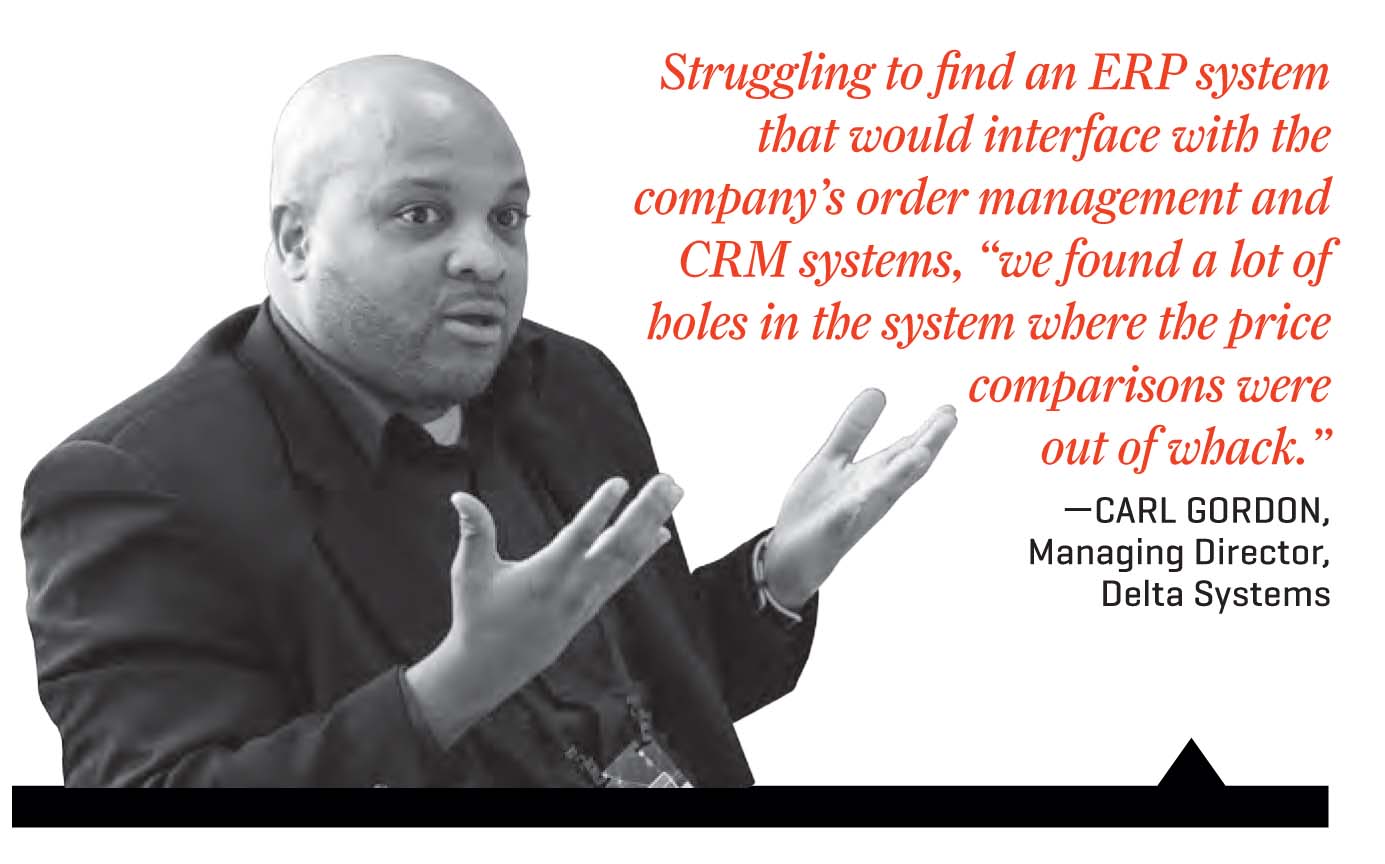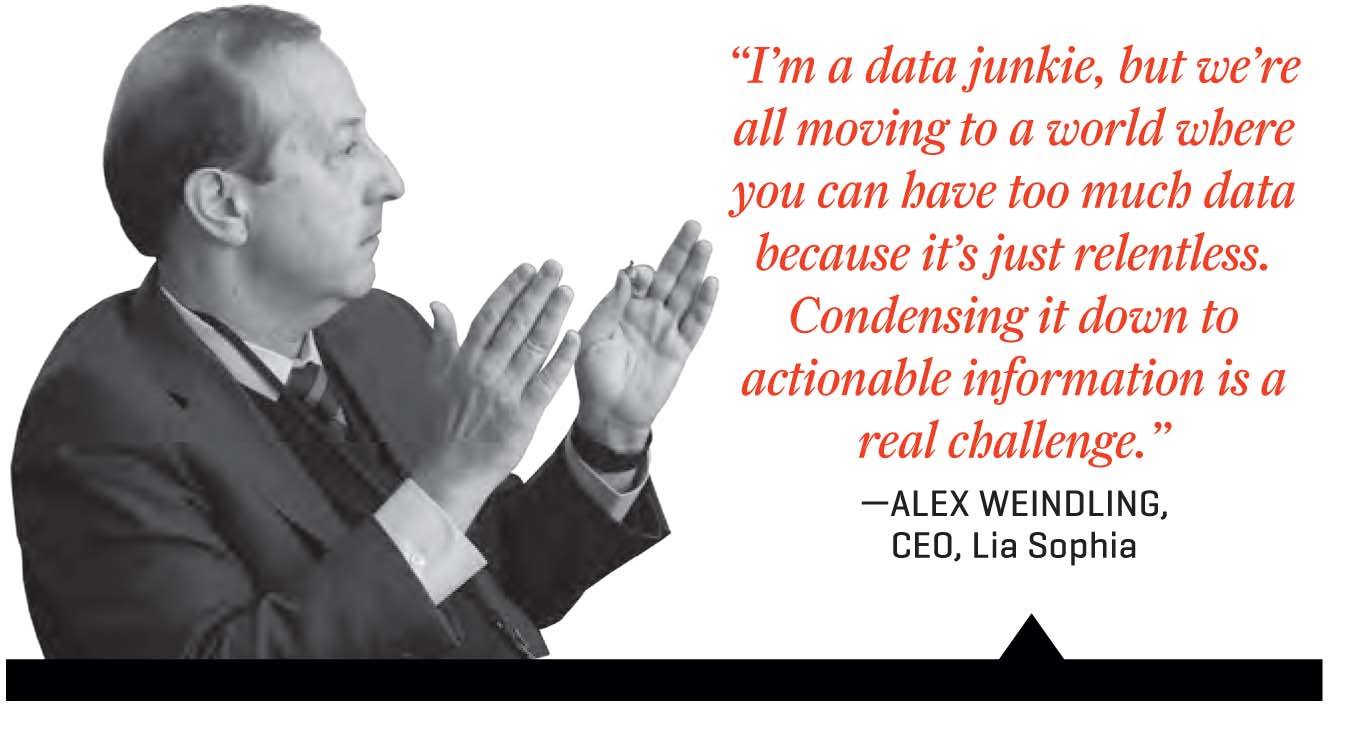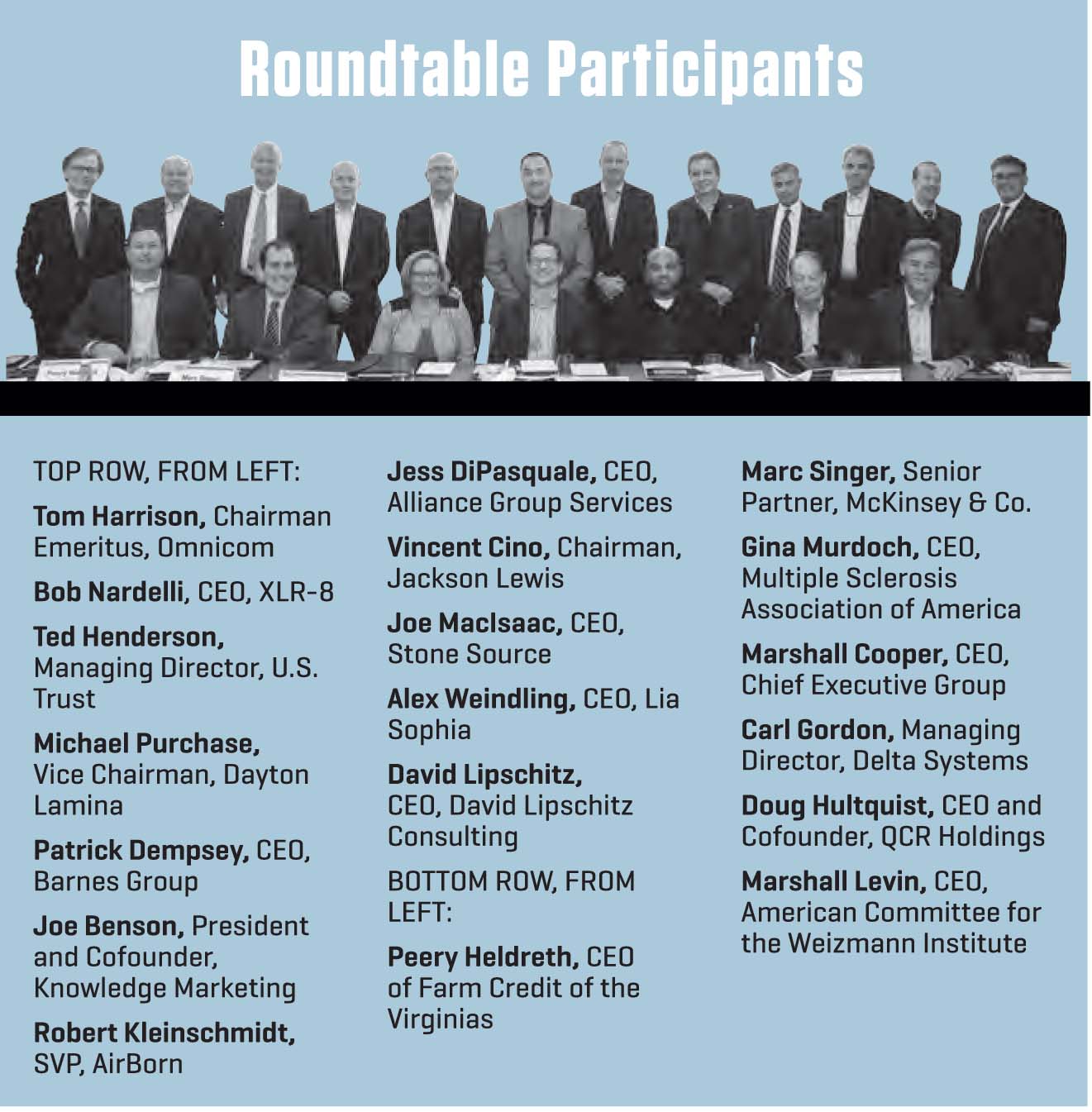 Over the past decade, companies have gone from not knowing enough about their customers to—if such a thing is possible—knowing too much. As unprecedented levels of demographic, behavioral and contextual data are collected on a daily, sometimes even hourly basis, business leaders increasingly find themselves inundated with information that they haven’t yet figured out how to mine, let alone monetize.
Over the past decade, companies have gone from not knowing enough about their customers to—if such a thing is possible—knowing too much. As unprecedented levels of demographic, behavioral and contextual data are collected on a daily, sometimes even hourly basis, business leaders increasingly find themselves inundated with information that they haven’t yet figured out how to mine, let alone monetize.
At the same time, CEOs recognize the benefits that harvesting data effectively can bring. Insights gleaned from solid information about current and potential customers not only help companies market their products and services better, but can also offer guidance on paths to future growth—suggesting products to develop, services to offer and operational or organizational changes that could boost profitability.
Several business leaders who gathered for a recent roundtable sponsored by Knowledge Marketing gave voice to this conundrum, acknowledging the role customer data can play in digital transformation even as they expressed frustration about the challenges of putting the numbers to use. “Early on, it became clear to me that I could spend all night on things like analytics and metrics,” Alex Weindling, CEO of Lia Sophia, noted. “I’m a data junkie, but we’re all moving to a world where you can have too much data because it’s just relentless. Condensing it down to actionable information is a real challenge.”
Navigating Data Overload
 Already, data has fundamentally changed the way companies engage with customers. Rather than companies pushing information to prospective customers, consumers now proactively pull the information they seek while companies monitor and respond to their actions, pointed out Joe Benson, president and cofounder of Knowledge Marketing. “I’m tracking everything you click on,” he said. “If you go to a website there’s a cookie that gathers information about the pages you view, and that information enables advertisers to deliver the right content, the right message, at the right time.” Taking those insights to the next level, Benson added, is where real transformation takes place: companies using data to shape strategy, and ultimately to reimagine their businesses.
Already, data has fundamentally changed the way companies engage with customers. Rather than companies pushing information to prospective customers, consumers now proactively pull the information they seek while companies monitor and respond to their actions, pointed out Joe Benson, president and cofounder of Knowledge Marketing. “I’m tracking everything you click on,” he said. “If you go to a website there’s a cookie that gathers information about the pages you view, and that information enables advertisers to deliver the right content, the right message, at the right time.” Taking those insights to the next level, Benson added, is where real transformation takes place: companies using data to shape strategy, and ultimately to reimagine their businesses.
Taking a strategic approach to data collection is the first step toward moving along that learning curve, noted Marc Singer, senior partner at McKinsey & Co., who urged CEOs to start by taking a hard look at their real data needs. “I’ve seen clients build data warehouses and buy CRM systems, then not be able to get any information out of them,” he warned. “Start by asking, ‘What are the questions that, if I had answers to them on a timely basis, could actually improve decision making?’”
At Lia Sophia, Weindling took a bottom-line approach to identifying relevant information from the pile of available data. “I told my guys, ‘If it doesn’t move the needle, don’t talk to me about it,’” he recounted, advising CEOs to do the same. “Keep it simple. Ask, ‘Does it make us money?’”
Often, having multiple systems—accounting, order management, customer management and enterprise resources—each with data sets that can’t be tied together, becomes a sticking point. Carl Gordon, managing director at Delta Systems, recalled struggling to find an ERP system that would interface with the company’s order management and CRM systems. “We found a lot of holes in the system where the price comparisons were out of whack,” he noted.
Vetting the Numbers
 It’s critical to understand the limitations of data, added Singer. “Be mindful that the data doesn’t [usually] tell you the why. In many cases you still have to go back and ask that question.”
It’s critical to understand the limitations of data, added Singer. “Be mindful that the data doesn’t [usually] tell you the why. In many cases you still have to go back and ask that question.”
Tom Harrison, chairman emeritus of Omnicom Group, offered a solution the marketing company employed to skirt that hurdle. “With all the data being amassed today we certainly know what consumers are doing, but we don’t know why these individuals are doing what they do,” he explained, noting that Omnicom tapped a cultural anthropologist to help its client companies understand the cultural underpinnings shaping consumer decisions. “I charged that person with going out and living among the constituents of many of our clients, whether those were patients who don’t take their medications or consumers buying rings. The way that it informed our business and business strategy and made us more sticky with our clients was amazing.”
“Data just reflects past behavior,” agreed Jess DiPasquale, CEO of Alliance Group Services. “The why is indicative of people’s emotional state, identity and mindset at that particular time. So a cultural anthropologist or social scientist can help us make the leap [about] what we understand about this behavior that can tap into people’s needs.”
 Gina Murdoch, CEO of the Multiple Sclerosis Association of America, pointed out that Amazon has found a way to get at the “why” question and also draw new customers with its AmazonSmile program. Charitable organizations, including schools, register with the website and invite their constituencies to shop through its AmazonSmile page, where the same products and pricing are available but 0.5 percent of the amount spent goes toward the charity customers select on AmazonSmile.
Gina Murdoch, CEO of the Multiple Sclerosis Association of America, pointed out that Amazon has found a way to get at the “why” question and also draw new customers with its AmazonSmile program. Charitable organizations, including schools, register with the website and invite their constituencies to shop through its AmazonSmile page, where the same products and pricing are available but 0.5 percent of the amount spent goes toward the charity customers select on AmazonSmile.
“It’s mutually beneficial,” Murdoch noted. “We are driving people who may or may not be existing customers to them, and we’re also giving them data about that person so they can say, ‘If they’re supporting this, they may be interested in that.’ It’s an interesting platform from that standpoint.”
Another lesson from Amazon is that the best customer service is often automated, noted Marshall Levin,CEO of the American Committee for the Weizmann Institute, who pointed out that the online retailer has excelled at using data analytics to segment its customers by need and then deliver on that need. “We all have these customer pyramids, with the best customers at the top,” he said. “So the question is how can you use technology and Big Data to segment those people, give them what they want at the right time and, in our case, flag a major donor.”
 Ultimately, improving the customer experience may be the best entry point for companies looking for a way to monetize data collection. “When we survey our customers about the easy wins around what they call Big Data, it’s always improved customer experience,” reported Benson.
Ultimately, improving the customer experience may be the best entry point for companies looking for a way to monetize data collection. “When we survey our customers about the easy wins around what they call Big Data, it’s always improved customer experience,” reported Benson.
“The first point should be, ‘Don’t bring me any data unless it will create satisfied customers,’” summed up Harrison. “Because as long as you have satisfied customers, the money will come.”

Chief Executive Group exists to improve the performance of U.S. CEOs, senior executives and public-company directors, helping you grow your companies, build your communities and strengthen society. Learn more at chiefexecutivegroup.com.
0

1:00 - 5:00 pm
Over 70% of Executives Surveyed Agree: Many Strategic Planning Efforts Lack Systematic Approach Tips for Enhancing Your Strategic Planning Process
Executives expressed frustration with their current strategic planning process. Issues include:
Steve Rutan and Denise Harrison have put together an afternoon workshop that will provide the tools you need to address these concerns. They have worked with hundreds of executives to develop a systematic approach that will enable your team to make better decisions during strategic planning. Steve and Denise will walk you through exercises for prioritizing your lists and steps that will reset and reinvigorate your process. This will be a hands-on workshop that will enable you to think about your business as you use the tools that are being presented. If you are ready for a Strategic Planning tune-up, select this workshop in your registration form. The additional fee of $695 will be added to your total.

2:00 - 5:00 pm
Female leaders face the same issues all leaders do, but they often face additional challenges too. In this peer session, we will facilitate a discussion of best practices and how to overcome common barriers to help women leaders be more effective within and outside their organizations.
Limited space available.

10:30 - 5:00 pm
General’s Retreat at Hermitage Golf Course
Sponsored by UBS
General’s Retreat, built in 1986 with architect Gary Roger Baird, has been voted the “Best Golf Course in Nashville” and is a “must play” when visiting the Nashville, Tennessee area. With the beautiful setting along the Cumberland River, golfers of all capabilities will thoroughly enjoy the golf, scenery and hospitality.
The golf outing fee includes transportation to and from the hotel, greens/cart fees, use of practice facilities, and boxed lunch. The bus will leave the hotel at 10:30 am for a noon shotgun start and return to the hotel after the cocktail reception following the completion of the round.